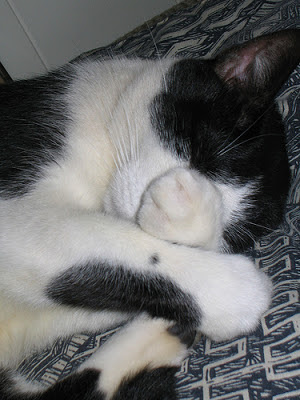Well, the other day it was Jack Engelhard telling me that my characters are almost definitely cardboard because they don’t talk to me. Now some literary critic tells me I’m not even a writer!
Alexander Nazaryan apparently let Keith Gessen and Nathaniel Rich really have it in 2008, and now he’s really sorry about it. His weirdly titled article for Salon says it all: “Keith Gessen, Nathaniel Rich: I’m sorry I trashed your novels. I was bitter. I wanted to sell my own book. And I still want some literary immortality of my own.”
 |
| I’m so sorry… Photo by Creatingkoan via flickr |
Reading this quasi apology is depressing. This poor guy has been writing during the time when the only valid way to get published was to manage to find an agent and then a publisher who felt you and/or your book were worthy. Sadly, none found him/it so. You feel sorry for him, really…sort of.
Because, while he’s agonizing over the humiliating, regrettable, and no longer necessary stumbling blocks to publication with traditional publishers, he’s also busy telling the rest of us we’re most likely not even writers at all, or certainly shouldn’t be, and lementing the “fact” that all the great writers are gone.
Nice Nazryan. Bitter to the very end.
“Like most of my fellow scribes,” he admits. “I also yearn for fame, greatness and immortality, preferably in that order.” And if you don’t? Well, for one, you’re “the most hopeless of naïfs.”
He goes on:
Let me go further: If you do not want your own version of the above, if you are indeed a reasonable and/or responsible young man or woman, then literature is not for you. If you have a compelling personal story to tell, tell it to a therapist. An MBA will do you far more good than an MFA. Pursue writing only if you are pathologically unable to pursue anything else. Otherwise, consider advertising.
Okay, let’s get this straight. If you don’t want immortality, fame, and greatness, not necessarily in that order, literature is not for you?
Now, granted, maybe this guy is using the word “literature” in the most snooty way possible. And I’ll agree that we’re not all writing “LIT-ra-tuuurah.” But, it’s pushing it to say that those writers who merely want to tell the stories in their heads and not, as he quotes Faulkner, to explore the great (and the only one worth writing about apparently) theme: “…the problems of the human heart in conflict with itself.”
Nazaryan uses Faulkner as a cudgel. Quoting him at length lamenting that writers just aren’t what they used to be. And then he asks us, nay, tells us, that if we find the quote “romantic and impractical, [we] have no business writing.”
It’s clear that Nazaryan and Faulkner, apparently, have their ideas about what a “great” novel ought to be, what true “literature” ought to be. But while we can forgive Faulkner a bit of angst over other writers just telling stories, we have to wonder where Nazaryan bought the gall.
Besides, there is something tragicomic in my increasingly desperate attempt to write a great novel — and why bother writing a novel if it isn’t going to be great? — at precisely the time that literature is facing its greatest devaluation since Gutenberg.
This reminds me of the old farts decrying the shreiking tunes and baggy pants, the sexual gyration called dancing, and the lack of respect in today’s youth.
Perhaps writing isn’t undergoing a devaluation. Perhaps writing has evolved to reach more and more people. Nazaryan needn’t worry (not that he’d stop), there is still plenty of great writing around. But if you really want to talk about the human heart in conflict with itself, a la Faulkner, let’s take a look at Twilight or Fifty Shades of Grey. It’s there. It’s garbed in middle-school writing that appeals to the masses, but that conflict is dripping all over those books.
Clearly, Nazaryan’s problem is that he’s been trying desperately to write a “great novel.” And yes, that is a tragicomedy. Just because some people have “great” stories to tell, doesn’t mean those are the only, or even the best stories.
Sometimes simple stories hit home. And thank the gods all writers aren’t so consumed with trying to be Faulkners or Hemingways and are just writing the stories in their heads, in their unique voices.
And what? You think the dead guys set out to write great novels? To create fame and immortality? Is that what drives art? No, no. What drives are is the desire to create. Nothing more. To take what is in us and put it outside us.
Take that agents advice, Naz, write a novel like you write your emails and you’ll soar. But if you yearn for immortality, fame, and greatness, writing is not the life for you.
